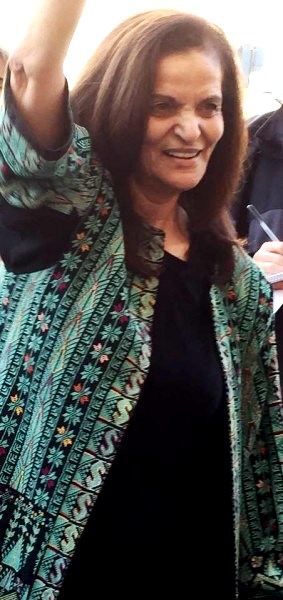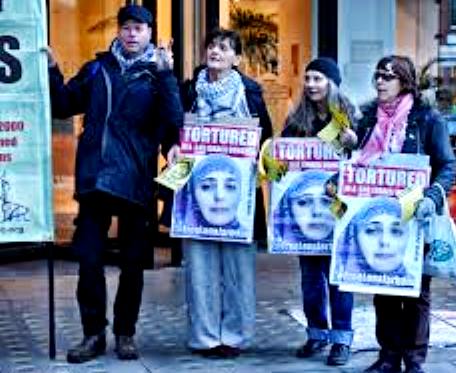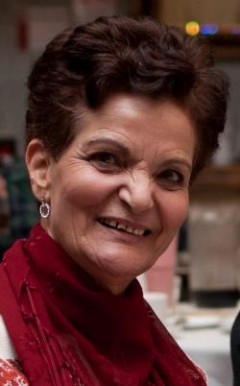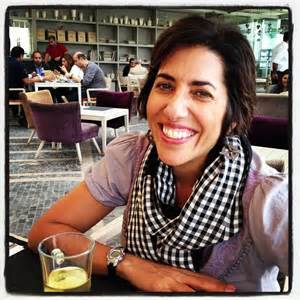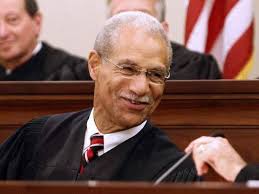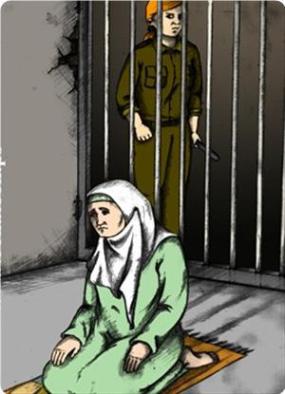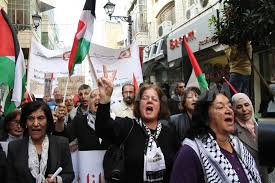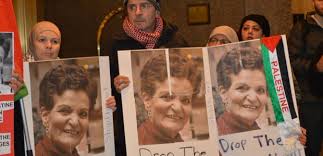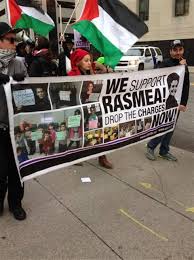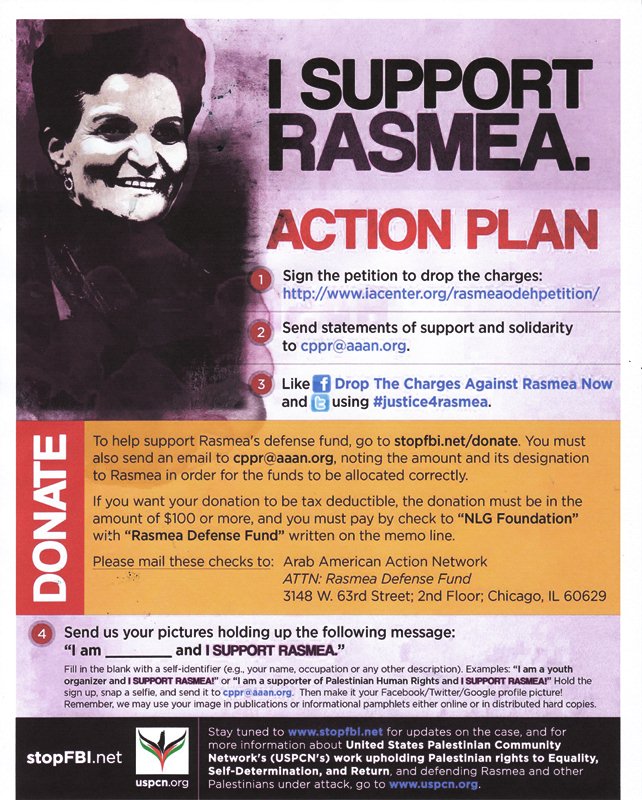UPDATE NOV. 10, 2014:
Rasmea Odeh taken to jail in handcuffs; defense to appeal
Judge Gershwin Drain’s repeated refusal to allow Odeh to testify re: torture that elicited false confession key to conviction
By Joe Iosbaker
November 10, 2014
Detroit, MI – The jury in the case of Rasmea Odeh returned a guilty verdict after less than two hours of deliberation this morning, Nov. 10. They accepted the charge against her for “unlawful procurement of citizenship.” In her application for citizenship a decade ago, she failed to disclose that she was a political prisoner in Israel 45 years ago, convicted after soldiers raped and tortured her into a confession.
The jury was unanimous in their decision, and then declined an offer for a final meeting with the defense attorneys for Odeh, choosing to only meet with the prosecution. During the jury selection process, the members of the jury all revealed that they didn’t know any immigrants.
Following the reading of the verdict, Judge Gershwin Drain complimented the jury. “I don’t usually comment on a verdict, but this was a just verdict.” Multiple rulings by Judge Drain placed severe limitations on Odeh’s defense a made the semblance of a fair trial impossible.
Odeh’s attorneys have vowed to appeal the conviction, following her March 10, 2015 sentencing.
Prosecutor launches final attack
Prosecutor Jonathan Tukel then motioned to revoke Rasmea’s bond and for her to be taken directly into custody. Judge Drain continued his pretense of pondering his decisions, and came back two hours later and gave the government this travesty as well. He said she was a flight risk, because she had no real ties to keep her in Chicago or the U.S.
This statement was made by the same man who ordered an overflow room to hold the scores of Rasmea’s supporters who packed the courtroom each day of the trial. He disregarded the love and dedication displayed by the Arab Women’s Committee members who spent a week away from their families to be in the audience throughout the trial.
Two U.S. Marshals then came in and led Rasmea away in handcuffs. After the judge left, Rasmea shouted to her supporters, “Don’t worry! I’m strong!” With this she showed the legendary spirit for which she was known back in Palestine, as well as among the community in Chicago.
The Rasmea Defense Committee is preparing a call for next steps in the continuing effort to free her. When Hatem Abudayyeh spoke to the crowd after the verdict was announced, he urged everyone to learn from her strength and continue to fight for justice for her, and to free Palestine.
Rasmea Defense Committee statement
Contact: Hatem Abudayyeh, 773.301.4108, hatem85@yahoo.com
Without a full and fair trial, Rasmea found guilty. Detention hearing at 2 PM.
In a travesty of justice, Rasmea Odeh today was found guilty of one count of Unlawful Procurement of Naturalization. For over a year, Rasmea, her supporters, and her legal team have been battling this unjust government prosecution, saying from the start that the immigration charge was nothing but a pretext to attack this icon of the Palestine liberation movement. And although there is real anger and disappointment in the jury’s verdict, it was known as early as October 27th that she would not get a full and fair trial.
RASMEA ODEH ON FEDERAL TRIAL IN DETROIT; SUPPORTERS PACK COURT
November 7, 2014
DETROIT — Rasmea Odeh, Israeli torture survivor and beloved human rights leader of Chicago’s Palestinian community, saw her supporters pack a Detroit courtroom Thursday for continuing testimonies and cross examinations of U.S. Citizenship and Immigration Services (USCIS).
U.S. District Court Judge Gershwin Drain has continued to strike any reference to Israelis brutally torturing her to force a confession about her role in a terror plot.
Under cross by defense attorney Jim Fennerty, USCIS agent Douglas Scott Pierce revealed a previous case in which he’d testified, saying that naturalization form questions can be “confusing,” especially for those not fluent in English. He acknowledged that older forms asked specifically about crimes, arrests, imprisonment, etc., “inside or outside the United States.” Today’s forms are less clear.
That set the stage for 66 year-old Rasmea Odeh’s argument that she’d always believed questions she’s been accused of answering falsely were asking about her time in the U.S., not Palestine. Jennifer Williams, the immigration officer who interviewed Rasmea back in 2004, testified, along with a fingerprint expert. The prosecution then rested its case.
Lead defense attorney Michael Deutsch called as his first witness University of Illinois-Chicago (UIC) professor Nadine Naber, a leading scholar on Arab women and other women of color, who first met Rasmea back in 2006. Naber testified to their work together, describing Rasmea’s organizing resulting in changing the lives of hundreds of Arab immigrant women by creating a space for them to face their collective challenges they experience. She testified about Rasmea’s character, a truthful person and community mentor.
Judge Drain then excused the jury to advise Rasmsea and Deutsch on his previous rulings, reinforcing his restrictions on her upcoming testimony. He asserted she would not be allowed to speak about her Israeli torture experience, stating he did not want to “retry the case” of 1969.
“It’s my life. I have a right to talk about the things that happened to me!” Rasmea responded.
Judge Drain refused to accede, restating that testimony referring to torture or her forced confession was inadmissible, and that if she violated his orders, there would be consequences.
Rasmea nevertheless delivered a heartfelt testimony, leaving the entire courtroom and the overflow courtroom where dozens more were seated, in tears, according to the United States Palestinian Community News.
She recounted her life story filled with tragedy and resilience, beginning with the Nakba, the ‘Catastrophe,’ what Palestinians call the founding of the state of Israel in 1948 when 750,000 Palestinians were driven out of their homes. She and her family were among those who lost their land and home, forced to live as refugees in a tent before making their way to Ramallah, where they lived during the 1967 Israeli war and occupation of the West Bank, Jerusalem, and Gaza.
Rasmea told the jury about the Israeli raid on her home in 1969, when she, along with her father and sisters, were arrested. That was when Israel swept up and arrested over 500 Palestinians. She broke down in tears recalling how that night traumatized her sister to the point of early death.
Although barred from testifying about Israelis torturing her, Rasmea told the court that she spent 45 days in an “interrogation” center. Prosecutor Jonathan Tukel objected. Judge Drain sustained the objection and reprimanded her.
Deutsch then asked her if she was convicted.
“They convicted me falsely,” she responded.
Again, the government objected and the judge sustained the objection.
“Did you try to escape?” Deutsch later asked her, in reference to one of Israel’s charges that the government has highlighted in this case. Rasmea answered boldly,
“Of course, any political prisoner [would] try to escape!” Rasmea reponded.
Supporters in the overflow courtroom applauded her answer. The main courtroom, however, heard another objection from Tukel and the he judge once again siding with the government. The political prisoner reference was struck from the record.
Rasmea described immigrating to the United States to care for her ailing father. When asked about the 1994 application for permanent residency filed in Jordan, she explained all answers on that form came from her brother. From the U.S., he had sent her a sample form, and she was to copy what he had written on the sample.
“I couldn’t read [English], and I trust my brother. I didn’t read anything, I just copied [what] my brother said,” she testified.
When Deutsch asked about her 2004 application for naturalization, and why she responded “No” to questions about whether she’d been arrested, convicted or imprisoned, she explained that those questions followed directly three previous ones explicitly about the U.S.
“When I continued, my understanding was [that these questions were also] about the U.S., so I continued to say no.”
Deutsch later asked what she’d have done had she understood the questions were intended to address imprisonment outside the U.S. as well.
“If I knew it was about Israel, I would have said…” she responded. “It’s not a secret that I’ve been in jail. Even the embassy knows.”
The U.S. embassy in Israel became involved in the initial arrests because her father was a U.S. citizen.
Rasmea was to continue testifying today. After cross-examination by the government, both sides will make their closing arguments.
The jury is not expected to begin deliberation until Monday, the earliest a verdict is expected.
Some 70 supporters were in the courtrooms Thursday. Inspired by Rasmea’s incredible testimony, rearranged their plans to stay through Monday. In Detroit, organizers were scrambling to ensure housing and transportation for people extending their stay and to prepare for more people arriving daily to join the fight for human rights and justice for Rasmea.
Sources: The Guardian, US Palestinian Community News
Image: USPC News
Statement from the Arab American Action Network
The Arab American Action Network (AAAN) condemns the politically-motivated arrest and indictment of Rasmea Yousef Odeh, our beloved Associate Director. The sixty-five year old was arrested at her home yesterday by agents from the Department of Homeland Security, alleging an immigration violation on a 20-year-old application. Rasmea, who has made it her life’s work to serve and help empower Palestinian and Arab families, is the victim of another witch-hunt by our federal law enforcement agencies, which continue to violate the civil rights of Arabs and Muslims with impunity, particularly those who are critical of U.S. support for Israel’s crimes against the Palestinian people.
Rasmea is a leading member of Chicago’s Arab and Muslim communities, and her decade of service here has changed the lives of thousands of people, particularly disenfranchised Arab women and their families. She has been with the AAAN since 2004, and as Associate Director, is responsible for the management of day-to-day operations and the coordination of our Arab Women’s Committee, which has a membership of close to 600 and leads our work in the areas of defending civil liberties and immigrant rights. She is a mentor to hundreds of immigrant women, as well as many members of our staff and board, and is a well-known and respected organizer throughout Chicagoland, the U.S., and the world.
Earlier this year, Rasmea received the “Outstanding Community Leader Award” from the Chicago Cultural Alliance, which described her as a woman who has “dedicated over 40 years of her life to the empowerment of Arab women, first in her homes of Palestine, Jordan, and Lebanon, where she was an activist and practicing attorney, and then the past 10 years in Chicago.”
Rasmea is a community icon who recently completed a Master’s degree in Criminal Justice from Governors State University. She overcame vicious torture by Israeli authorities while imprisoned in Palestine in the 70s, and is a proud reminder of the millions of Palestinians who have not given up organizing for their rights of liberation, equality, and return.
It is appalling that our government is now attempting to imprison her once again. We condemn this attack on our friend and colleague Rasmea, as well as the broader pattern of persecuting Arabs and Muslims who are outstanding and outspoken leaders in their communities in the U.S.
We ask all of our supporters to call Barbara McQuade, U.S. Attorney for the Eastern District of Michigan in Detroit, at 313.226.9501 or 313.226.9100, on Friday, October 25th, from 8 AM to 4 PM CST, to demand that she Drop the Charges Now!
And for more information, email the Coalition to Protect People’s Rights at cppr@aaan.org
Read more News and Views from the Peoples Struggle at http://www.fightbacknews.org. You can write to us at info@fightbacknews.org

